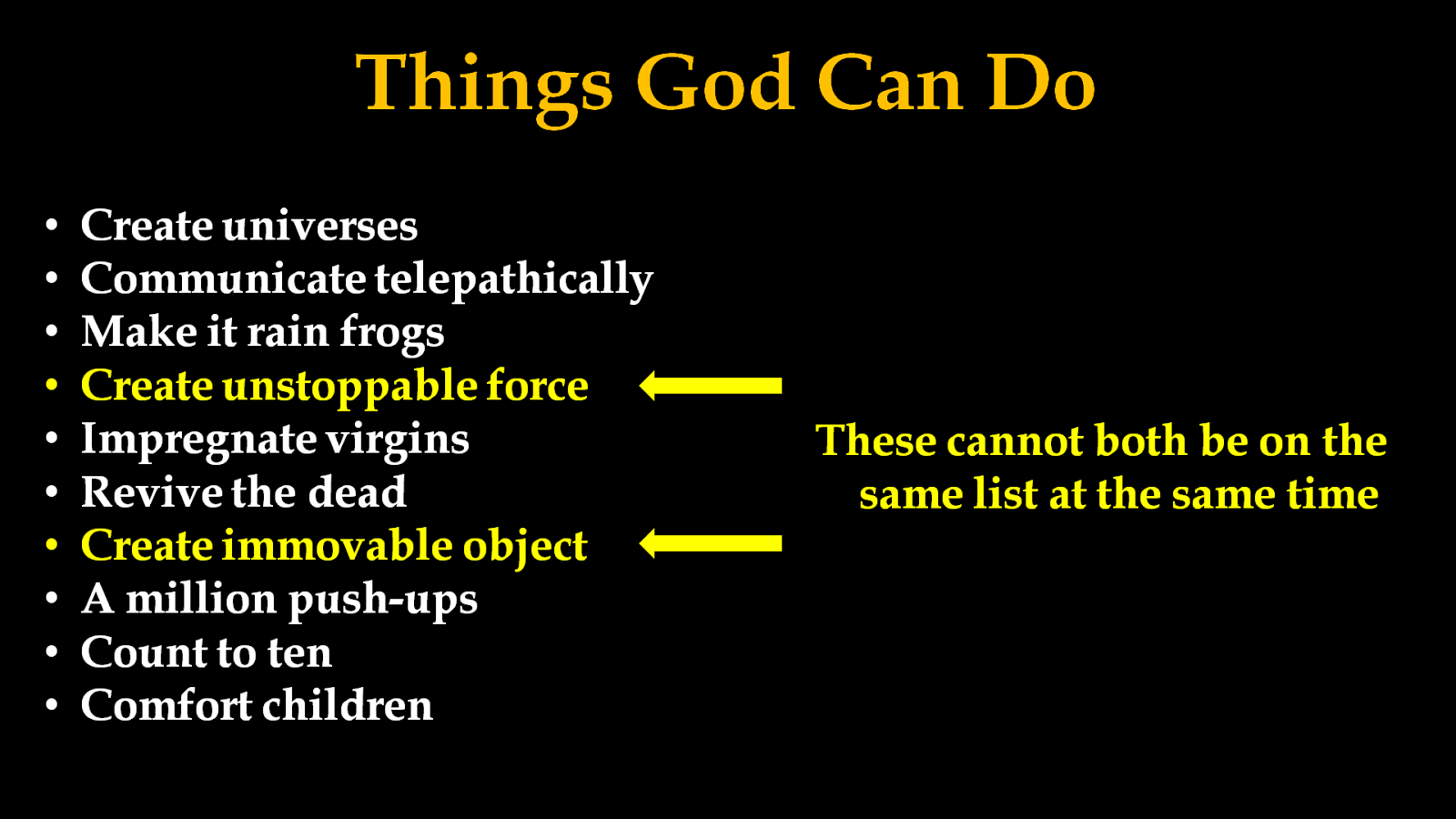

This is an extension of the topic multiple Omnipotents. Which is also why we don't put writers into our "Most Powerful Characters" lists. Because they do not really like cake, do they? When we say one is truly omnipotent, it is only within the domain of discourse. With only the context of the "real world", not just Omnipotence, but nothing can be attributed to these non-existent characters. You can replace Bella Bella with any fictional character, and the logic still applies. This statement is automatically false not because Bella Bella doesn't like to eat cake, but because Bella Bella doesn't even exist.

For example, Bella Bella likes to eat cake. This actually goes back to a philosophical topic of Domain of Discourse, which validates statements about non-existent elements. While that is true, we still refer to some as truly Omnipotent. Many believed that True Omnipotence (in fiction) is impossible because they cannot affect the real life, which means at least one thing cannot be done. But it is almost certain that they have something that they can't achieve. They can do many crazy stuff that we can only imagine, such as reality warping, full-control of destiny etc. So, most beings are actually just virtually omnipotent. Two Omnipotents, though not the same being, will still make it doubly pointless almost as if they are. True Omnipotence, when manifests itself, defeats all logic and plot elements, and basically makes narrative pointless.

While true omnipotence is not really exclusive, I cannot overemphasis that it is still extremely rare. What was aforementioned was True Omnipotence, and the second being Virtual Omnipotence.

Types of Omnipotenceĭespite the many tropes on the internet, there are really just two types of Omnipotence due to its nature. That depends completely on the narrative. It doesn't mean that if both are truly omnipotent, both are one of the same being. Without Omniscience, Omnipresence and especially Omnitemporal, there will be at least one possible way that you can lose the battle.Įven for Omniarch, multiple beings on the top of the power hierarchy simultaneously does not break any rules either. While I think that not everything are about battles, I'd like to quickly debunk this with the fact that there are more factors in play than just Omnipotence. Because if two true omnipotent beings were to fight, it will either be loss for one of them (thus not truly omnipotent), or end with a stalemate (thus neither being truly omnipotent). It is a popular belief that there can only be one Omnipotent in each Verse. For practical purpose, they are considered as an Omnipotent. One can even make itself not Omnipotent, known as Surpressed Omnipotence.Īlmightiness is being inherently absolute in every sense. By extension, no attribute can be assumed for an Omnipotent for one can literally be anything (it wants). While Omnipotence includes the ability to be Almighty, it also includes the ability to be not Almighty. Omnipotence is often confused with Almightiness as a state of existence or being infinite. Omnipotence is the concept, while Omnipotent is the trait or user. Sometimes, it also includes Omniarch, which suggests being on the top of some power hierarchy. When someone say "stronger/weaker", they often actually mean "more/less powerful".Omnipotence is thus Ultipotence with Complete Arsenal, being able to do anything to any extent. Strength is only the physical aspect of raw potency.Originally, this isn't part of what "power" represents, but "power" as a short form of "superpower", making it confusing. Omnipotence is the absolute term to "power" which can mean either or all of the following: That includes the ability to be almighty, but not limited to it. "all power"), is at its core, being all-powerful, or able to do all things.


 0 kommentar(er)
0 kommentar(er)
